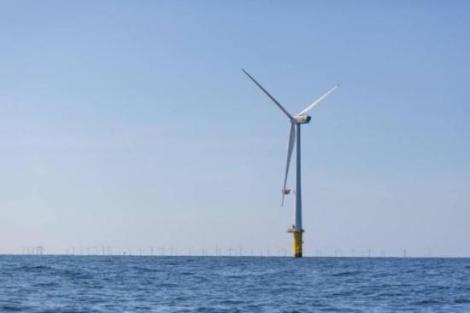Seacoop: citizens become co-owners of wind turbines in the North Sea
February 2025
Founded in 2022 by 34 citizen renewable energy cooperatives, the Belgian cooperative Seacoop offers citizens the opportunity to invest in offshore wind power and benefit from the energy produced.
Feedback from Fabrice Collignon, Vice-President.
How did Seacoop come about?
Fabrice Collignon: It was first and foremost inspired by the renewable energy community cooperatives (REScoops) that have existed in Belgium for over 20 years. The North Sea and the wind are common goods and there is no reason why these concessions should be reserved for private companies. With the national cooperative Seacoop, we want to be the voice of 34 cooperatives and be an audible interlocutor on the market. We have secured support from our regions and the federal state, and made contact with market players. Intense lobbying was needed to demonstrate the value of promoting citizen participation in offshore wind energy.
What is the economic model for these offshore wind projects?
Fabrice Collignon: We negotiated the immediate ownership of 7% of the Northwind offshore wind farm, giving rise to the Notre Énergie project: the equivalent of 5 wind turbines, which supply more than 15,000 homes. Seacoop will participate in a consortium of partners. This consortium will submit a bid for ownership of the wind farm. The energy suppliers and the industrial operator manage the overall set-up, the industrial part and the financial planning, and we provide the citizen participation. Because to obtain a concession in Belgium, a minimum of 2% of the total cost of the project must be open to citizen participation.
How is the governance organised?
Fabrice Collignon: The local cooperatives and Seacoop have a dual accreditation. They respect the principles of the International Co-operative Alliance: transparency, internal democracy, free entry and exit in the shareholding. They also subscribe to the principles of the social and solidarity economy, with a desire to have an impact on the local area. Dividend opportunities are limited to 6%, directors are volunteers and voting rights at general meetings are limited (one person, one vote).
How do citizens become co-owners?
Fabrice Collignon: The citizen takes a share in a local cooperative, and this local cooperative invests its financial resources in a wind turbine. It owns the means of production, supplies electricity, and this production will be returned to the citizens. The citizen is both the owner and the customer of his or her own electricity. Our aim is to have a mechanism that allows us to free ourselves from market fluctuations so that citizens pay a fixed price, and do not fill the pockets of shareholders who will make excessive profits, as was the case during the energy crisis following the invasion of Ukraine in 2022.
Have you encountered any obstacles?
Fabrice Collignon: We had to demonstrate our ability to adapt to the sector and its operating rules, while keeping our values intact and our commitment to democracy. The barrier to entry is high because you have to invest significant amounts of money to be considered credible. We had to convince the banks to lend money until the citizen capital raising is finalised by September 2025. The financial requirements for future concessions are even greater and it is necessary to be able to put the money on the table, while respecting the complex planning for the construction of these offshore wind turbines. We hope to win the tender for the construction of another wind farm in the Princess Elisabeth zone (in the North Sea). The change of scale is considerable: 125,000 people are involved in our cooperatives, and we are aiming for half a million Belgians by 2030 thanks to the Notre Énergie platform.
